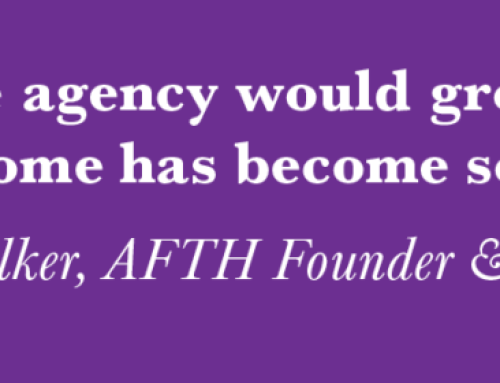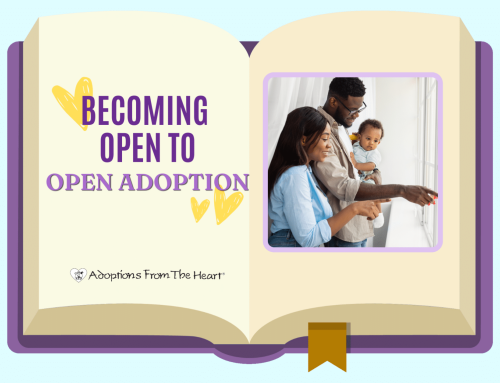You may or not be familiar with the concept of rehoming that has been surfacing in the news from time to time. We explored the concept further to give you all the facts and information you need to understand the dangers of rehoming.
What it is Rehoming?
There was a Reuters article released in 2013 that exposed a very scary trend of parents that adopted children internationally, and a few that adopted domestically, who were turning to the internet (some have been found searching online “how to give a baby up for adoption“) to find a different home for their children rather than using resources like adoption professionals for advice. These adoptive parents often say that because of a child’s behavioral issues it became too difficult to handle the child and their needs so they use online resources to market their child to another family.
The most common behavioral “issues” cited include:
- Reactive Attachment Disorder ( RAD)
- Post Traumatic Stress Disorder (PTSD)
- ADD/ADHD
- Fetal Alcohol Syndrome
Families that then in turn take in or rehome the adopted child most times have not even had a background check, clearance, or education. Many abuse or traffic the children once they are in their home.
What is the Government Doing to Prevent Re-Homing
In a recent blog post, Adoptions From The Heart researched and explained the current legislation in place to help children and to reduce the amount of rehoming happening in the world. Here is an expert from that blog post:
Unfortunately, there are few laws put into place to prevent the dangerous act of illegal re-homing. The Interstate Compact on the Placement of Children or ICPC is an agreement among the US States, the District of Columbia, and the US Virgin Islands that requires families to secure approval of authorities in both states when custody of a child is transferred across state lines to someone outside the family. This law was put into place so that prospective parents could be properly vetted, yet despite this law being put into place, it is rarely enforced due to lack of knowledge by local law enforcement and because of failure of parents to take proper legal action. When this law is enforced, the magnitude of the punishment varies, with some states charging parents with criminal sanctions such as misdemeanors, and other states not explicitly stating what the punishment is. If a child is re-homed illegally, the child must be immediately removed and returned to their parents, but parents are rarely punished for their actions.
Parents offer their children for re-homing on the internet because they feel there are limited resources to help them post-adoption. Therapeutic treatment is often expensive and social services in many states do not offer help for families. Some parents feel that in international adoption there is not enough information disclosed about children that are being placed for adoption and this makes them ill-equipped to handle emotional and behavioral issues.
The Universal Adoption Accreditation Act of 2012, which went into effect in July 2014, was put into place to insure that international adoption agencies, even those that are not part of the Hague Agreement, are held to the same standards as domestic adoptions. International Agencies that are accredited and approved are subject to ongoing monitoring and observation and are held accountable for failure to adhere to accreditation standards.
The safeguards put into place by this act include:
- The inability to obtain children through sale, exploitation, abduction, or trafficking
- Parents will receive training to better prepare themselves for the challenges they may face when raising an adopted child
- Agencies must ensure that the inter-country adoption is in the best interest of the child
- Agencies must ensure that their personnel are qualified and appropriately trained and provide adoption services in an ethical manner
- Agencies must respond to complaints about their services and activities and may not retaliate against their clients who complain
While the initial reaction may be to judge these families who have re-homed their children, take note that the resounding reason that families gave for rehoming their child was due to a lack of resources to help them with handling the emotional and behavioral disabilities that they were ill-prepared for. The fact of the matter is that some adoptions will disrupt in order to find a better equip environment for the child. The problem is that there are a lack of options and support for families to disrupt the adoption safely. It is the stigma of a failed adoption as well as lack of resources and support for families in crisis that have helped to create the re-homing problem.
How is AFTH Educating Families during and after the Adoption Process
Adoptions From The Heart prides themselves on providing resources to all members of the adoption community. Adoption doesn’t end after placement, or even after finalization and it should continue to be a lifelong journey of learning.
It is not uncommon for families to need or want additional support from an adoption counselor after placement or when approaching different stages throughout their child’s life. Agencies should be observing not just the child’s adjustment, but also to the parent’s adjustment post adoption because signs of depression or the inability to care for the child’s needs from the parents should be caught before the situation worsens.
AFTH encourages families to make them the first call when a troublesome situation arises. We offer resources like the following for adoptive families:
https://afth.org/community-education/learning-center/
https://afth.org/community-education/support-groups/
There are also government resource offered to adoptive families like the following:
https://www.childwelfare.gov/topics/adoption/adopt-parenting/
https://www.childwelfare.gov/topics/adoption/adopt-assistance/
http://www.adoptuskids.org/for-families/post-adoption-resources
Related blogs by Adoptions From The Heart:
https://afth.wordpress.com/2015/11/25/re-homing-parents-place-their-children-on-internet-forums-when-adoptions-dont-go-as-expected/
http://afth.wordpress.com/2013/09/18/re-homing/





